Battlefield 1 wastes little time in conveying the savagery of World War 1. The inevitability of death is the focus of the bleak story prologue. A burning man’s screams can be heard at the start of every multiplayer match in the Argonne Forest. It’s ruination on a multi-continental scale, a conflict so large that its location menus showcase a large portion of the Earth. EA DICE splendidly interprets the early 20th century as a world in technological transition while humanizing the war's participants through well crafted, albeit fictional, narrative vignettes. Combined with an enthralling multiplayer component, the overall result is the studio’s best work since Battlefield: Bad Company 2.
The horrors and heroism of The Great War are well told in War Stories, Battlefield 1’s campaign. It’s a more focused experience compared to prior Battlefield story modes of globetrotting and one-note powderkeg narratives. These new tales are organized in a non-linear anthology format that doesn’t need to be played in any particular order. You are exposed to a variety of perspectives from the characters you play, each with their own motivations, from altruistic to self-serving. And each tale is presented with distinct narrative flavor. The exploits of the mostly unlikeable Clyde Blackburn, for example, represent the stories that get mixed up in the chaos of war. This gambler and swindler leaves the events of his alleged adventure open to interpretation. His tale is an effective contrast to the somber post-war account of Luca Vincenzo Cocchiola, an armored Italian soldier tasked with protecting his twin brother from everything from bombers, shock troopers, flamethrowers, and more.
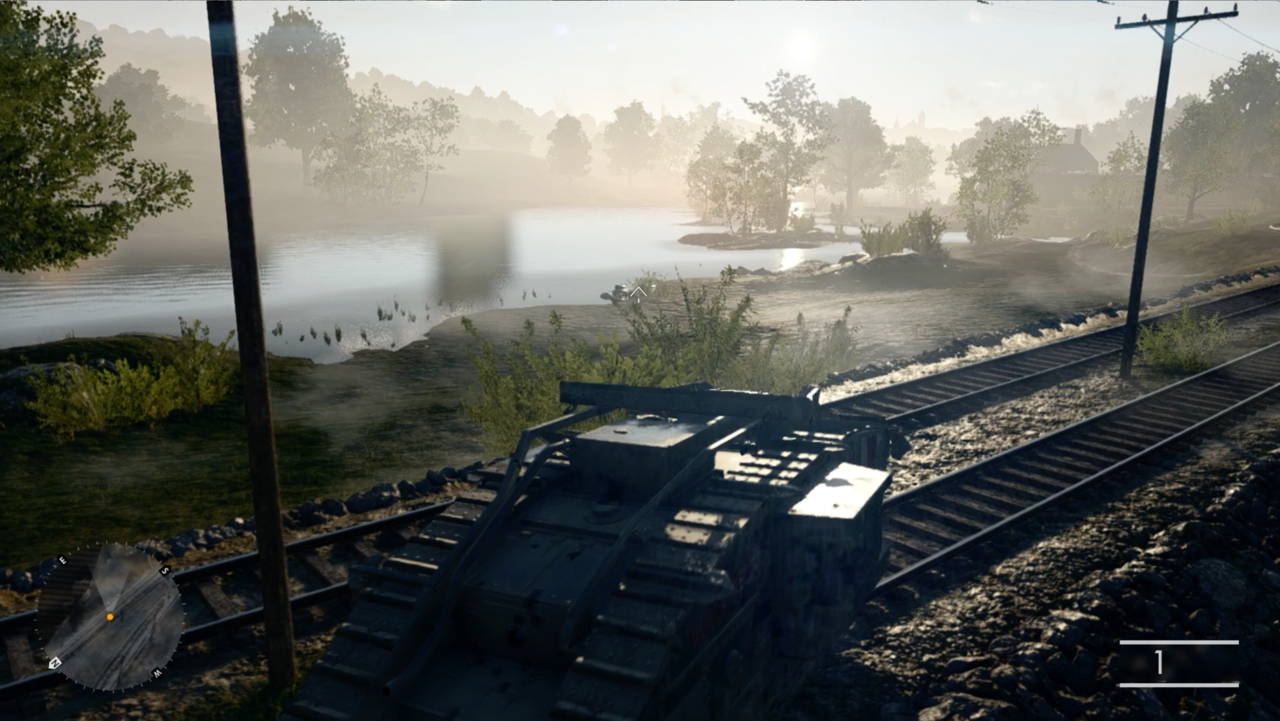
Beyond these heartfelt tales of brotherhood and solemn reflection, War Stories gracefully complements the multiplayer scenarios as a glorified yet effective training mode. Along with practice time commanding vehicles and heavy artillery, it provides an opportunity to learn melee combat, as well as how to survive against high concentrations of enemy forces. It also presents scenarios that you wouldn't find online, such as valuable lessons in the ways of stalking enemies and how best to move wounded allies to the safety of cover.
The vehicular sections of War Stories introduce you to the first generation of tanks and fighter aircraft that were the advanced warfare of their time. In “Through the Mud and Blood,” a Mark V tank is its own character, endearingly nicknamed Bess by its crew. Short on space though tanks may be, a carrier pigeon joins you for the ride, and proves to be a valuable passenger during one of the campaign’s most touching scenes.
Battlefield 1’s multiplayer stays faithful to the series’ roots of open-space combat, now marvelously tailored with World War 1’s weapons, vehicles, and terrain. Its centerpiece, Operations, finds one side pushing forward while the other holds them back in conflicts that can last an hour. It’s not an emotionally draining endurance match, however; the changes in environments as the battle progresses keeps the fight fresh. A match can move across up to five areas across the same region, which is analogous to playing five different small maps. As a cavalry-inspired twist, the losing side gets two last ditch opportunities to win with the help of an airship, attack train, or a dreadnought.
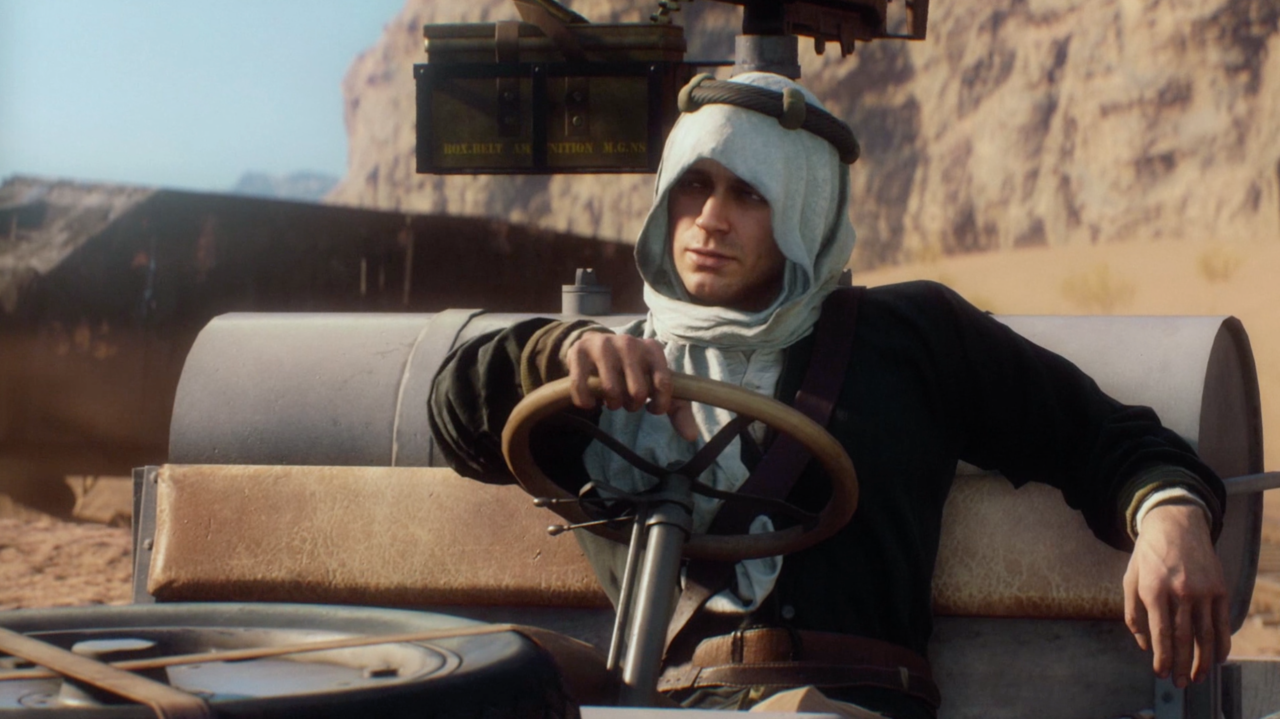
Operations also offers a surprising amount of historical context thanks to informative pre- and post-match voice over. For instance, the Kaiserschlacht operation not only broadly educates players on the 1918 Spring Offensive, it also hypothesizes what could have happened had the Germans won.
Like a band of brothers reuniting, the reprise of Conquest, Domination, Rush, and Team Deathmatch delivers the goods for the Battlefield devotee. Beyond amassing the highest kill count or earning the best kill/death ratio, there’s a thrill in adapting to changing circumstances mid-battle. This is especially true for team players, who must constantly try to figure out how to be the best contributor. That could mean protecting a capture point or stopping an enemy charge by assaulting them from an airship. Lastly, War Pigeon--which has the hallmarks of a throwaway novelty mode--shares some fundamentals with Capture The Flag, where the bird serves as the flag. The challenge comes in finding a safe place to write a message for the bird to deliver, releasing the pigeon outdoors, and ensuring it doesn’t get shot down.
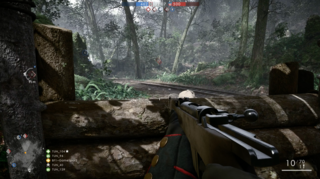
A mode is only as good as the map it's based in and Battlefield 1's maps are all smart and interesting in their own ways. Peronne, with its mix of small town in ruins and untended fields, requires bit more time to memorize its layouts and strategically advantageous points. From the vacant French palace in Ballroom Blitz to the labyrinthine streets of Amiens, every locale has its own sense of character. This is aided by the inclusion of armed gargantuan machines like the airship and train. The Argonne Forest in particular--with its light mist, detailed vegetation, and man-made ruins--is one of the most gorgeous multiplayer maps ever conceived. Compared to the many near-symmetrical maps in Battlefield: Hardline, these new fields of operations feel natural and, more importantly, inviting.
With Battlefield 1, EA and DICE have proven the viability of World War 1 as a time period worth revisiting.
The series’ best maps are those that encourage you to play outside your comfort zone, to spend time with things you typically ignore and to play around with the available vehicles. The FAO Fortress in Mesopotamia and Monte Grappa in the Alps, for instance, are ideal maps to acquaint yourself with the exhilaration of sniping. The outstanding expansiveness of the maps and the abundance of routes in a given area create myriad opportunities to circumvent bottlenecks and camping spots.
Challenges in navigation are found in the multiplayer menus. Getting into a match isn’t a problem, but the online UI isn’t very intuitive, particularly in defining some of the categories of unlockables. Furthermore, it’s disappointing that it’s not possible to leave the multiplayer mode in between matches; you actually have to wait until the next match starts before you can exit. But these minor issues do not dampen the overall experience.
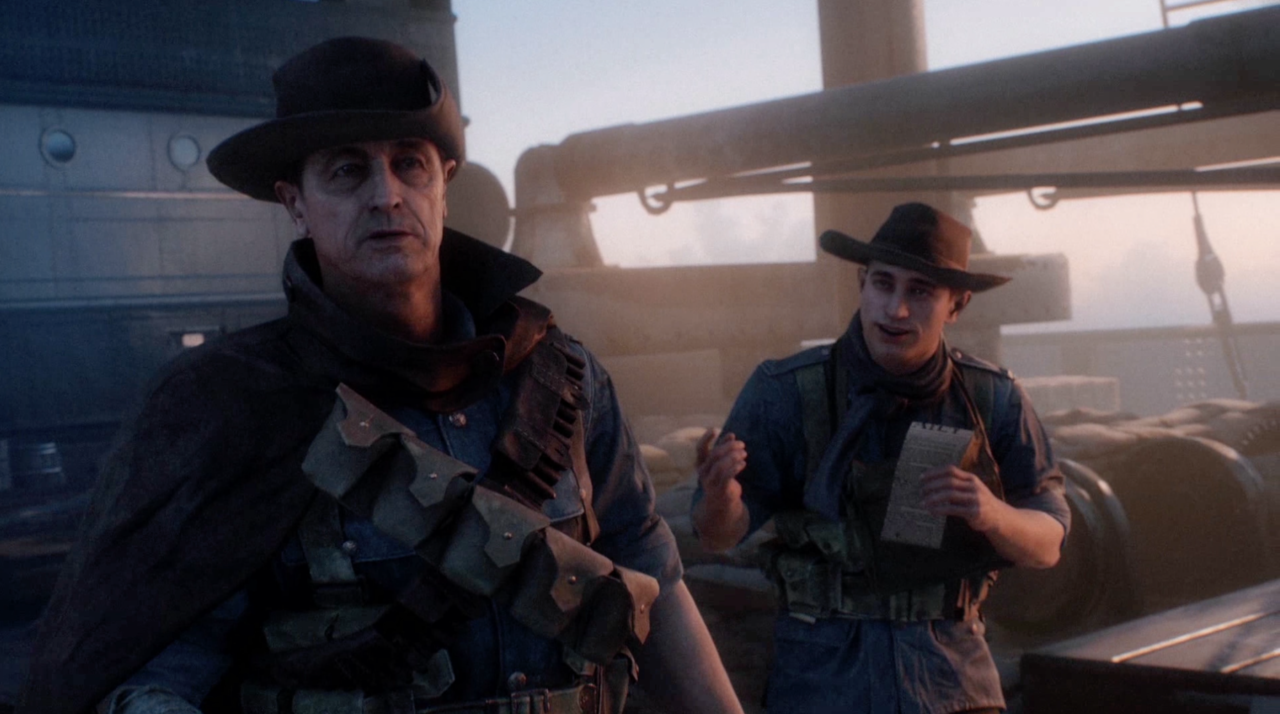
The robust and satisfying progression system is how you customize your online experience, where much of your arsenal is built on whatever you spend your level upgrade rewards on. Growing a collection of firearms is rewarding for veterans while the simplicity of most of the antiquated weapons makes the conflicts accessible to newcomers. It’s meat-and-potatoes 20th century combat; no drones or heat seeking bullets to concern yourself with. Every meaningful action is recognized--even dealing a flesh wound earns you experience points. You’ll have more armaments to choose from than your average World War I soldier, though, which is indicative of the creative liberties Battlefield 1 takes.
However accurate or inaccurate Battlefield 1 is--lite J.J. Abrams lens effects notwithstanding--the immersive production values superbly amplify the sights and sounds that have previously existed in other war shooters. Examples include the distinct clatter of empty shells dropping on the metal floor of a tank and the delayed sound of an exploding balloon from far away. The brushed metal on a specific part of a revolver is the kind of eye-catching distraction that can get you killed. Beyond the usual cacophony of a 64-player match, salvos from tanks and artillery guns add bombast and bass to the large map match. And many vistas are accentuated with weather-affected lighting with dramatic results, like the blinding white sunlight that reflects off a lake after a rainstorm.
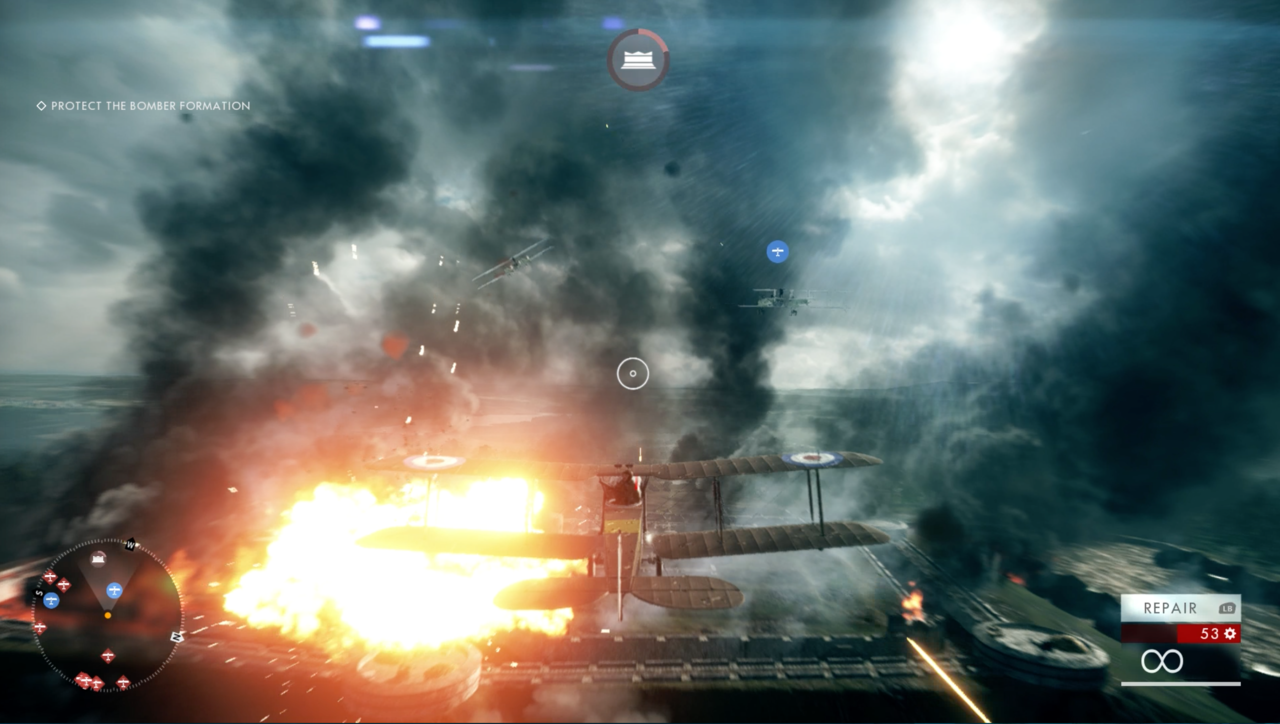
With Battlefield 1, EA and DICE have proven the viability of World War 1 as a time period worth revisiting in first-person shooters. It brings into focus countries and nationalities that do not exist today while also shedding light on how the outcome of that war has shaped our lives. As World War II shooters proved many years ago, no game can truly capture the entirety of a global conflict. This is why the focused structure of the War Stories anthology works well. Moreover, Operations succeeds as an effective educational primer on the battles that this gripping adversarial mode are based on. Battlefield 1 is just an introduction to one of the deadliest world events in history, but it is an outstanding, feature-rich package in both its emotional stories and strong multiplayer.























